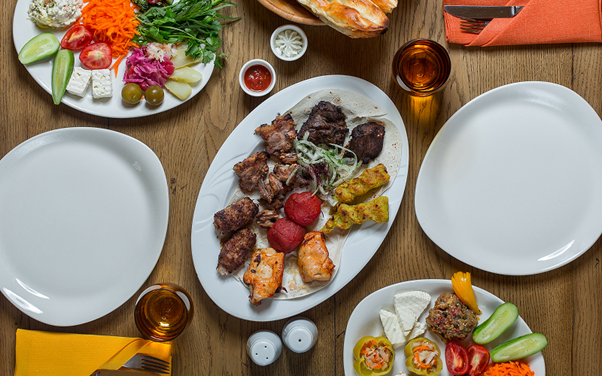Halal food often sparks curiosity, especially for those unfamiliar with its meaning. It follows specific Islamic dietary laws that guide how food is sourced, prepared, and served. If you’ve ever hesitated while browsing a menu in search of halal food in Singapore or elsewhere, unsure if the dish aligns with halal guidelines, you’re in good company.
Halal: What It Really Means
Halal is an Arabic word that translates to “permissible” and applies to what Muslims may eat under Islamic dietary rules. These rules don’t stop at the ingredient list. They also outline how food must be handled, cooked, and sourced to qualify as halal.
For meat, specific conditions must be met. The animal must be healthy before it is slaughtered. A prayer is recited during the act, which must be carried out by a Muslim who is of sound mind. The process is intended to be swift and respectful.
Pork and alcohol are strictly avoided in halal food, along with anything derived from them. Kitchens that prepare halal food maintain separation from non-halal ingredients to prevent cross-contact, which is why cleanliness and clear labelling are important.
Halal Food in Singapore: What’s the Deal?
Singapore’s diverse population means food spots cater to different dietary needs, including halal. There are dedicated halal-certified eateries, as well as restaurants that offer selected halal options. The local authority responsible for this certification is MUIS, the Islamic Religious Council of Singapore.
To get certified, food businesses must follow a strict set of rules. They need to use halal-certified ingredients, separate equipment, and maintain clear documentation. It is not a one-time deal either. Regular audits ensure ongoing compliance.
Halal food in Singapore is widely available, from food courts to high-end dining. Whether you are grabbing a quick nasi lemak or sitting down for a multi-course meal, finding certified options is relatively easy.
Common Misunderstandings Cleared Up
One myth is that halal food must be spicy or Asian. Not true. Halal refers to how food is sourced and prepared, not how it tastes. You can have halal burgers, pizzas, and even gelato.
Another mix-up is between halal and vegetarian food. While plant-based meals are often halal by default, not all are. Alcohol-based sauces or certain additives can make them non-halal.
There is also confusion between halal and kosher. While both follow religious dietary laws and share some similarities, they are based on different religious traditions with unique rules.
How to Spot Halal Food
To find halal food in Singapore, keep an eye out for the official certification mark, often displayed near the entrance or on the menu. If it is unclear, asking staff members is a reliable way to confirm. Most are familiar with the certification details and can clarify on the spot.
Digital tools also make it easier. The MUIS directory of halal-certified establishments is available online and helps diners search confidently. With these resources, it’s easier to make informed choices and avoid uncertainty.
ALSO READ: 8 Halal-Friendly Restaurants to Try in Singapore
Is Halal Food Healthier?
Not automatically. Halal food can be healthy, but it can also be fried, creamy, or sugary. What halal food does offer is transparency. You know how the meat is handled, what ingredients are used, and that there is accountability.
For example, halal meat is drained of blood during the slaughter, which some believe leads to cleaner meat. There is also an emphasis on hygiene in halal kitchens, with clear rules on cleaning, storage, and handling.
Dining Out Without Worry
Whether you follow a halal diet or dine with someone who does, knowing what qualifies helps. It removes guesswork and makes it easier to enjoy the experience.
Many halal-friendly spots in Singapore serve diverse cuisines. From Indian-Muslim dishes to Western grills and Korean-style fried chicken, halal food in Singapore does not mean limited options. It means inclusive menus that serve more people.
The Takeaway on Taste and Trust
Halal food involves more than avoiding pork and alcohol. It reflects a complete approach to sourcing, preparation, and service. This practice helps build trust with diners and welcomes a broader community to the table.
Seeing a halal certification means the food has passed a set of checks that align with both religious values and food safety standards.
Check out Taste of SG to explore halal food in Singapore that meets your taste, your needs, and your peace of mind.





































